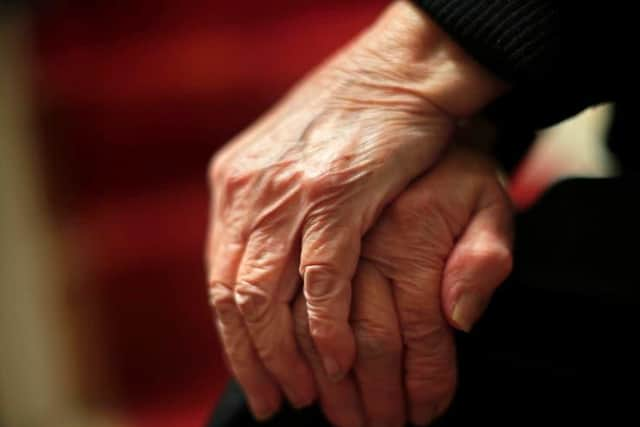Fury over delays to help for vulnerable people – as one Notts patient waited five years
and live on Freeview channel 276
Mental health charity Mind said it is ‘disgraceful’ anyone in the country should be forced to wait a year or more for their application to be processed.
Hospitals and care homes must apply to councils for Deprivation of Liberty Safeguards to make decisions for anyone thought to lack the mental capacity to do so themselves, such as those with dementia or serious mental health problems.
Advertisement
Hide AdAdvertisement
Hide AdThere is currently a legal maximum time limit of 21 days for applications to be processed.


But NHS Digital data shows Nottinghamshire Council completed 3,755 applications in 2020-21, with each one taking 79 days on average, up from an average of 64 days the year before.
Only about 16 per cent of the 1,645 standard applications completed last year were processed within the target time, while one application had taken more than five years – 1,929 days – to be finalised.
Sue Batty, council service director ageing well community services, said: “The council is committed to ensuring people unable to make decisions for themselves have their rights and liberty safeguarded.
Advertisement
Hide AdAdvertisement
Hide Ad“We have invested significant resources to meet the increased demand and in 2019/20 were one of the best performing local authorities in England for the speed in which we assessed cases.
“Cases of this kind will be complex and sensitive and the pandemic has produced huge additional challenges for our dedicated team, for example national restrictions on accessing care home residents and hospital patients who need to be assessed.
“We already have a recovery plan under way as part of our Covid response work and use a nationally agreed system to prioritise the most urgent cases and keep this under constant review.”
‘Riddled with problems’
The average time to complete an application across England rose from 142 days in 2019-20, to 148 last year – with one in the Merton, London, taking more than 10 years.
Advertisement
Hide AdAdvertisement
Hide AdMind said DoLS were intended to protect some of the most at risk members of society, but they have been ‘riddled with problems’ and left thousands of people without vital legal protection.
Alison Cobb, Mind specialist policy advisor, said: “These delays mean people are being deprived of liberty without the right safeguards, as providers cannot use all the protective legislation.
“It is a disgraceful breach of human rights that people are waiting a year or longer for their DoLS application to be processed.
“This can mean they endure unnecessary delays to being placed in the best care setting for them, which would help to protect them from harm.”
Advertisement
Hide AdAdvertisement
Hide AdThe Government has committed to replacing the safeguards with Liberty Protection Safeguards in April 2022, but Mind fears these will also fail to put individual needs at the heart of the process.
Of the 3,755 applications completed in Nottinghamshire last year, the largest proportion, 35 per cent, were from nursing homes.
And those with applications submitted on their behalf were typically aged 85 and over – at a rate of 7,050 in every 100,000 people in that category.
The Alzheimer's Society said local authorities have been overwhelmed with applications since a 2014 court ruling widened the definition of deprivation of liberty.
Advertisement
Hide AdAdvertisement
Hide AdGavin Terry, society head of policy, said: “As applications are piling up on desks, people with dementia are effectively being unlawfully deprived of their freedom, unable to come and go as they please, without any safeguards in place to protect them.”
The Department of Health and Social Care said protections for people who need them will be improved and extended through the new LPS.
A spokeswoman said: “To protect the human rights of people who may lack mental capacity it is important care homes and hospitals continue – until the new safeguards are in place – to make DoLS applications and local authorities consider them.”
